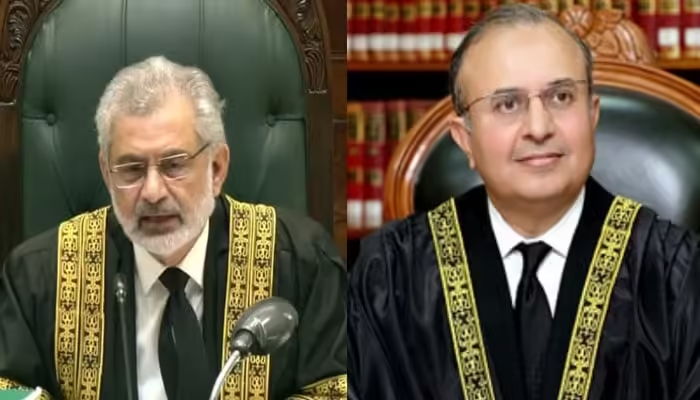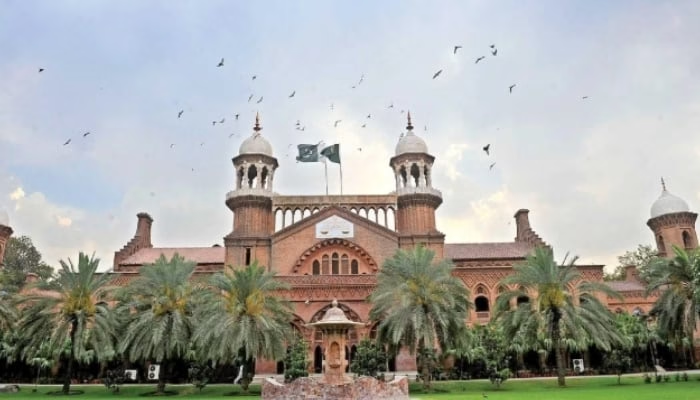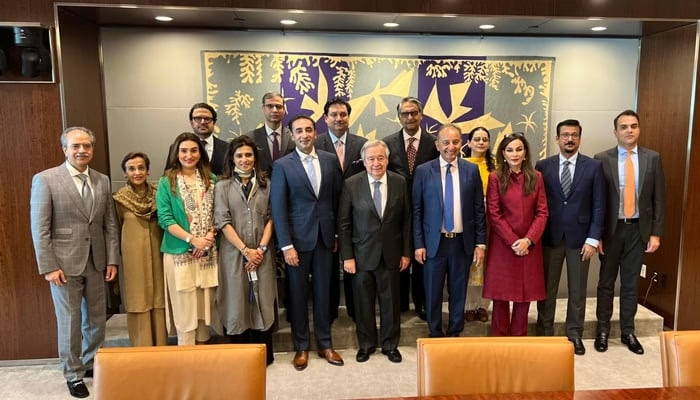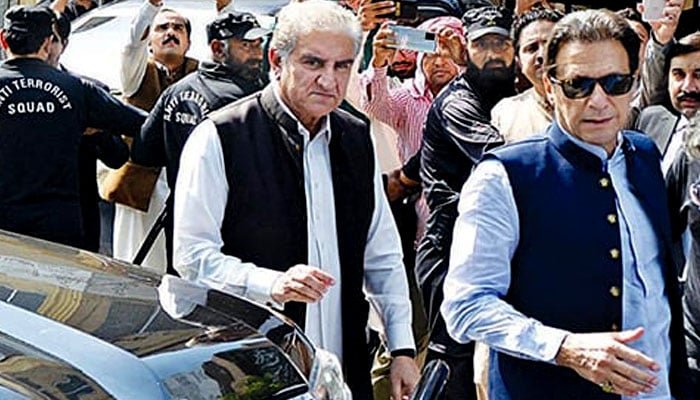In a recent development within Pakistan’s judiciary, Justice Mansoor Ali Shah of the Supreme Court has once again taken a firm stance by refusing to sit on a special bench. In a letter written to the Chief Justice of Pakistan, Qazi Faiz Isa, on October 23, 2024, Justice Shah reiterated his earlier decision to recuse himself from special benches until a full court sits to address the amendment ordinance. His decision underscores the importance of judicial integrity and personal conscience, themes that are woven throughout the letter.
The Context of Justice Shah’s Refusal
Justice Mansoor Ali Shah has been vocal about his discomfort with the formation of special benches that have not been addressed by a full court. His letter, sent to the Chief Justice in his capacity as the head of the Practice and Procedure Committee, reaffirms his earlier decision to abstain from participating in these special benches. He stated clearly, “I had written earlier that I will not be a part of the special benches until the full court sits on the amendment ordinance.”
This stand stems from Justice Shah’s belief that significant amendments, particularly those affecting the judicial process, require the deliberation and input of a full court. His insistence on a full court review of the amendment ordinance speaks to his dedication to upholding the integrity of the judicial system and ensuring that any changes are thoroughly examined before being implemented.
Citing Sir Thomas More: A Reflection on Conscience
A particularly poignant moment in Justice Shah’s letter is his reference to Sir Thomas More, the English lawyer, judge, and philosopher known for his steadfast commitment to his conscience. Justice Shah quoted Sir Thomas More’s famous words: “When politicians abandon their personal conscience for the sake of their public duties, they lead their country on a short path to destruction.”
By invoking this quote, Justice Shah draws a parallel between More’s historical stance and the present challenges faced by Pakistan’s judiciary. More, who refused to compromise his principles even in the face of immense pressure from political authorities, serves as a symbol of integrity and moral courage. Justice Shah’s inclusion of this quote highlights his belief that personal conscience should not be sacrificed for public duty, particularly in a position of power such as the judiciary.
Justice Shah’s reflection on this quote is significant in a time when judicial independence is a topic of growing concern in Pakistan. His letter serves as a reminder that while judges have a duty to serve the public, they must do so with an unwavering commitment to justice and fairness. Abandoning personal conscience, according to Justice Shah, could lead to decisions that harm the country in the long term.
Accountability and the Watchful Eye of History
In his letter, Justice Mansoor Ali Shah makes a pointed remark about the accountability of those in power, stating, “While we are in power, we often forget that the people of this country are watching our actions, history never forgives.” This statement encapsulates a key aspect of his judicial philosophy — that those who hold positions of authority must act with integrity and responsibility, as their actions will be judged by both the public and history.
Justice Shah’s reference to the people of Pakistan watching closely reflects the growing public scrutiny of the judiciary and its decisions. In recent years, Pakistan’s courts have faced criticism for their handling of high-profile cases, with concerns about the influence of politics and external pressures. Justice Shah’s insistence on transparency and full court deliberation on critical matters highlights his belief in the importance of public trust in the judiciary.
The statement “history never forgives” serves as a powerful reminder that while current decisions may seem expedient, they will be judged by future generations. For Justice Shah, this long-term perspective is critical. The decisions made today will shape the judiciary’s legacy, and he is determined not to be part of any process that could undermine the institution’s credibility.
Upholding Judicial Integrity
Justice Mansoor Ali Shah’s letter is a clear assertion of his commitment to judicial integrity and independence. His refusal to participate in special benches without a full court review of the amendment ordinance is not just a procedural decision, but a reflection of his broader belief in the need for a judiciary that operates free from undue influence.
In an era where the judiciary in many countries faces increasing political pressure, Justice Shah’s stand is a reminder of the crucial role that judges play in maintaining the rule of law. By adhering to his principles and prioritizing conscience over expediency, Justice Shah is setting an example for both his peers and future generations of judges.
His invocation of Sir Thomas More and his focus on the long-term consequences of judicial actions underscore the gravity of the role that the judiciary plays in shaping a nation’s future. For Justice Shah, the integrity of the judicial process is non-negotiable, and he is willing to take a stand, even if it means recusing himself from important cases.
Justice Mansoor Ali Shah’s latest letter to the Chief Justice of Pakistan is a significant moment in the ongoing dialogue about judicial independence and integrity in Pakistan. His refusal to sit on special benches without full court deliberation on the amendment ordinance demonstrates his commitment to a transparent and accountable judicial process. By referencing Sir Thomas More and emphasizing the importance of conscience and accountability, Justice Shah has once again reinforced the idea that the judiciary must be guided by principles, not just procedures.
As Pakistan’s judiciary continues to navigate complex legal and political challenges, Justice Shah’s words serve as a powerful reminder of the importance of personal integrity and the lasting impact of decisions made by those in power. His stance is not just about one case or one decision, but about the broader role of the judiciary in upholding justice and maintaining public trust.



